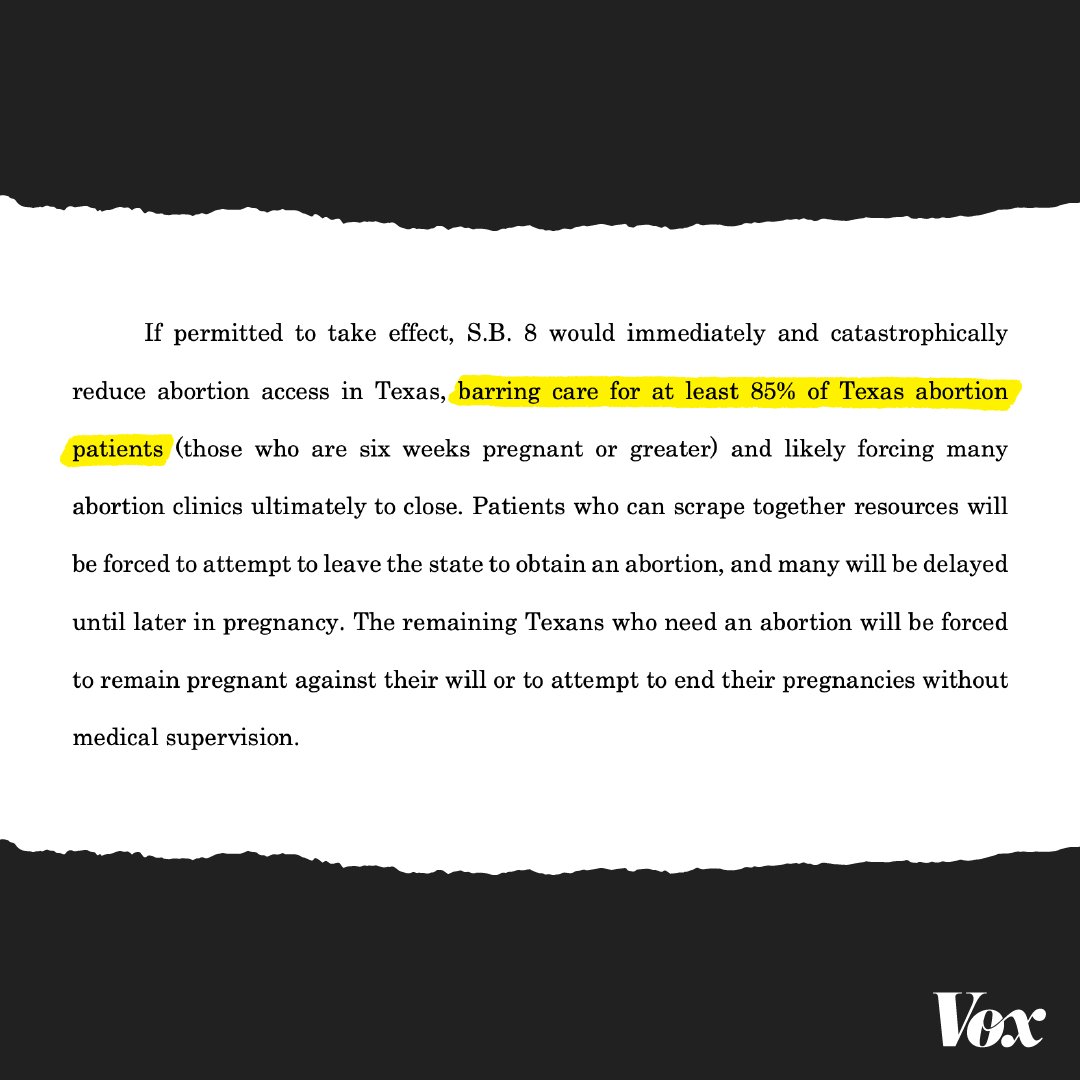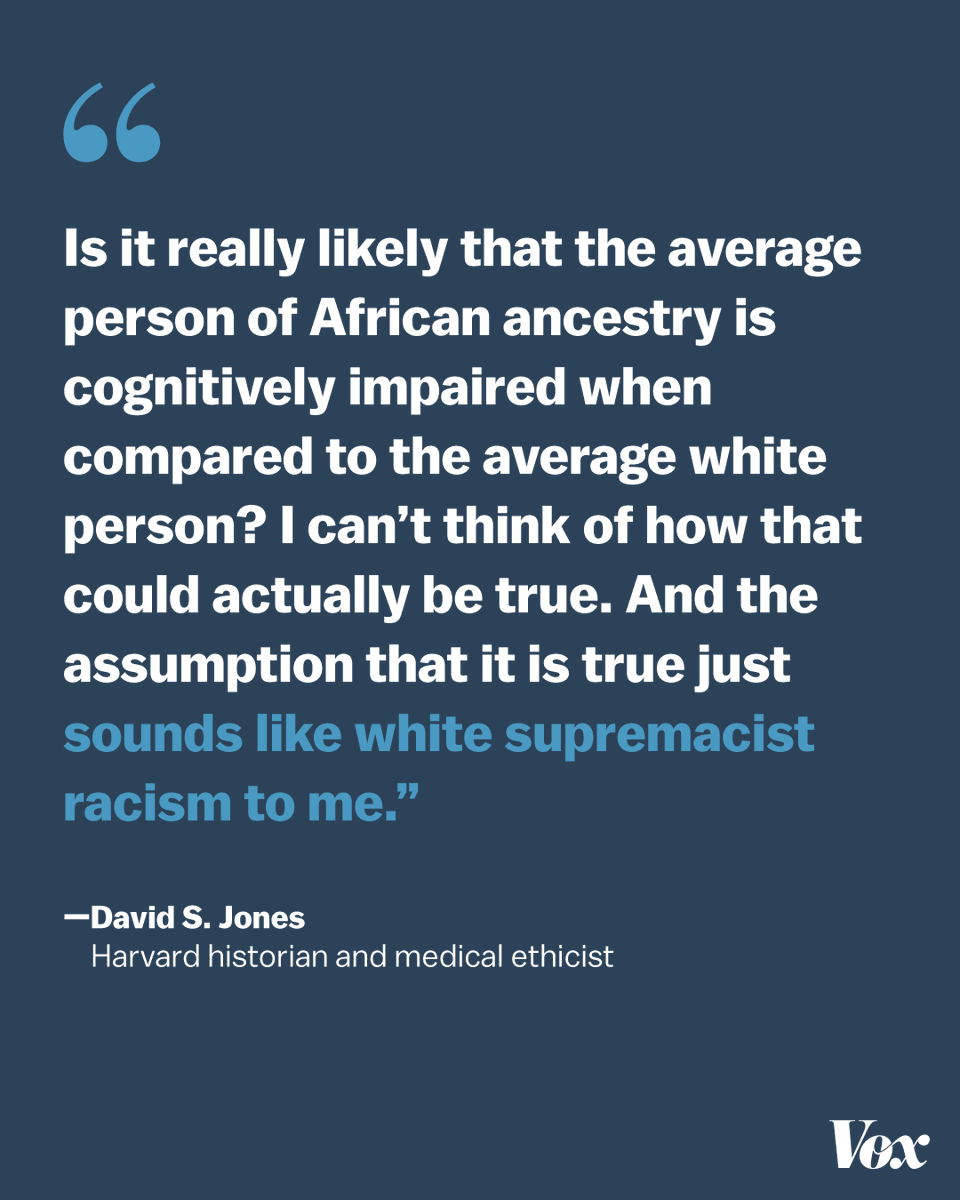
The stakes of a SCOTUS case concerning Texas's new anti-abortion law are enormous.
By refusing to stop a law that violates decades-old precedent protecting the constitutional right to an abortion, SCOTUS has effectively changed that precedent.
Thread. vox.com/2021/8/31/2265…
By refusing to stop a law that violates decades-old precedent protecting the constitutional right to an abortion, SCOTUS has effectively changed that precedent.
Thread. vox.com/2021/8/31/2265…
The law, SB 8, is huge loss for abortion rights in Texas. It effectively bans most abortions; at six weeks, many people don't even know they're pregnant.
Abortion providers warned of the dangers of the law in an emergency request to SCOTUS, which it declined to take up:
Abortion providers warned of the dangers of the law in an emergency request to SCOTUS, which it declined to take up:

Crucially, no court has actually reached the core question at the heart of this case: whether the law is unconstitutional.
If the justices remain silent, they will bless a tactic that could be used to undermine virtually any constitutional right.
vox.com/2021/8/31/2265…
If the justices remain silent, they will bless a tactic that could be used to undermine virtually any constitutional right.
vox.com/2021/8/31/2265…
The Supreme Court's silence could embolden other states to follow in Texas's footsteps and enact all kinds of unconstitutional practices that can't be challenged until after the unconstitutional law takes effect. vox.com/2021/8/31/2265…
The Supreme Court might still choose to weigh in on SB 8, but in the meantime, abortion access in Texas will be extremely limited. Abortion providers who remain operational are likely to be crushed by a wave of lawsuits they can't afford to litigate. vox.com/2021/8/31/2265…
The Supreme Court's failure to issue a stay sends a "clear signal that they don't think the ordinary rules should apply to litigants they dislike. It is a terrifying sign about the future of the rule of law," @imillhiser writes. vox.com/2021/8/31/2265…
• • •
Missing some Tweet in this thread? You can try to
force a refresh












